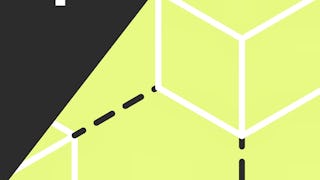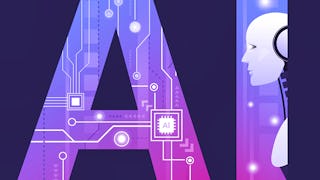Filter by
SubjectRequired
LanguageRequired
The language used throughout the course, in both instruction and assessments.
Learning ProductRequired
LevelRequired
DurationRequired
SkillsRequired
SubtitlesRequired
EducatorRequired
Explore the Knowledge Graph Course Catalog
 Status: NewStatus: Free Trial
Status: NewStatus: Free TrialSkills you'll gain: IntelliJ IDEA, Java, Object Oriented Programming (OOP), Integrated Development Environments, Software Development Life Cycle, Program Development, Java Programming, Computer Programming, Development Environment, Data Structures, Debugging, Software Development, Programming Principles, Linux, Command-Line Interface
 Status: New
Status: NewSkills you'll gain: Pseudocode, Programming Principles, Software Visualization, Computational Logic, Debugging, Computer Programming, Graphical Tools
 Status: NewStatus: Free Trial
Status: NewStatus: Free TrialPackt
Skills you'll gain: Routing Protocols, TCP/IP, Open Shortest Path First (OSPF), Network Administration, Virtual Local Area Network (VLAN), Network Routers, Network Routing, General Networking, Dynamic Host Configuration Protocol (DHCP), Ansible, Puppet (Configuration Management Tool), Software-Defined Networking, Local Area Networks, Network Security, Computer Networking, Command-Line Interface, Network Infrastructure, Wireless Networks, Security Awareness, Network Switches
 Status: New
Status: NewSkills you'll gain: Embedded Software, Development Environment, Embedded Systems, Electronic Hardware, 3D Modeling, Electronics, Hardware Design, Microarchitecture, Computer Programming Tools, USB, Microsoft Visual Studio, Integrated Development Environments, Electronic Components, Environmental Monitoring, Program Development, Internet Of Things, Computer Programming, Control Systems
 Status: New
Status: NewBoard Infinity
Skills you'll gain: Open Source Technology, Large Language Modeling, AI Personalization, Prompt Engineering, Generative AI, Artificial Intelligence, Applied Machine Learning, Application Programming Interface (API), Natural Language Processing, Data Security
 Status: New
Status: NewSkills you'll gain: Generative AI, Microsoft Azure, Image Analysis, Computer Vision, OpenAI, Artificial Intelligence, Natural Language Processing, Machine Learning, Data Ethics, Deep Learning, Text Mining, Data Science
 Status: New
Status: NewClemson University
Skills you'll gain: Dimensionality Reduction, Data Cleansing, Matplotlib, Regression Analysis, Unsupervised Learning, Data Science, Statistical Analysis, Statistical Methods, Descriptive Statistics, Data Analysis, Data Visualization Software, Applied Machine Learning, Pandas (Python Package), Big Data, Data-Driven Decision-Making, Exploratory Data Analysis, Predictive Modeling, Machine Learning Algorithms, Machine Learning, Supervised Learning
 Status: New
Status: NewSkills you'll gain: Generative AI, Scalability, Cloud Computing Architecture, Large Language Modeling, Systems Architecture, Cloud Applications, Cloud-Native Computing, Site Reliability Engineering, Artificial Intelligence and Machine Learning (AI/ML), Threat Modeling, Security Engineering, Containerization, Load Balancing, Docker (Software), System Monitoring, Disaster Recovery, Information Privacy
 Status: NewStatus: Free Trial
Status: NewStatus: Free TrialSkills you'll gain: HTML and CSS, Cascading Style Sheets (CSS), Responsive Web Design, Web Development Tools, Hypertext Markup Language (HTML), Web Design, Development Environment, Web Design and Development, Web Development, Front-End Web Development, Semantic Web, Web Content Accessibility Guidelines, Typography
 Status: New
Status: NewSkills you'll gain: Business Leadership, Artificial Intelligence, Business Strategy, Risk Management, AI Personalization, Strategic Thinking, Business Transformation, Technology Strategies, Generative AI, Digital Transformation, Project Management Software, Organizational Leadership, ChatGPT, Machine Learning, Data Ethics, Innovation, Emerging Technologies, Automation, Trend Analysis, Return On Investment
 Status: New
Status: NewUniversity of Copenhagen
Skills you'll gain: Chronic Diseases, Primary Care, Preventative Care, Health Care, Health Disparities, Health Equity, Health Systems, Community Health, Patient Education And Counseling, Public Health, Epidemiology, Nutrition and Diet, Socioeconomics, Education and Training
 Status: New
Status: NewSkills you'll gain: Debugging, Development Environment, .NET Framework, C# (Programming Language), Integrated Development Environments, Microsoft Visual Studio, Programming Principles
Knowledge Graph learners also search
In summary, here are 10 of our most popular knowledge graph courses
- Mastering Java - From Beginner to Intermediate: Packt
- Fundamentals of Programming Using Flowchart and Pseudocode: Packt
- Cisco CCNA (200-301): Packt
- ATtiny Microcontroller Development for Arduino Programmers: Packt
- DeepSeek Essentials: From Foundations to Real-World Use: Board Infinity
- Exam Prep AI-900: Microsoft Certified Azure AI Fundamentals: Whizlabs
- Applied Data Science: Clemson University
- Architecting AI Solutions – Scalable GenAI Systems: Packt
- Foundations of Modern HTML & CSS: Packt
- AI Strategy for Business Leaders with ChatGPT, ML & DL: Packt










